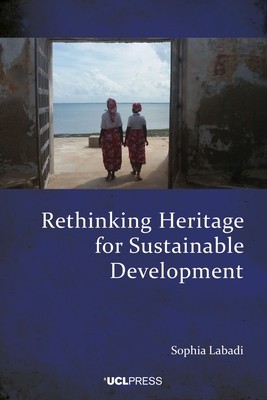
- We will send in 10–14 business days.
- Author: Sophia Labadi
- Publisher: UCL Press
- Year: 2022
- Pages: 264
- ISBN-10: 1800081936
- ISBN-13: 9781800081932
- Format: 15.4 x 23.2 x 2.4 cm, minkšti viršeliai
- Language: English
- SAVE -10% with code: EXTRA
Reviews
Description
An innovative look at heritage in sustainable development, based on archival research on UN and World Bank documents and ethnographic fieldwork in Africa. In 2015, the UN adopted Sustainable Development Goals (SDGs), which have since influenced international and intergovernmental organizations and governments and dictated priorities for international aid spending. Culture, including heritage, is often presented as fundamental to addressing the SDGs. Yet in practice heritage is marginalized when SDGs are being discussed and implemented. This volume presents a substantial and original assessment of whether and how heritage has contributed to three key dimensions of sustainable development (poverty reduction, gender equality, and environmental sustainability) within the context of its marginalization from the SDGs and from previous international development agendas. The book adopts a novel, inclusive, large-scale, and systematic approach, providing the first comprehensive history of the international approaches to culture (including heritage) in development from 1970 to the present day. It critically assesses the international projects implemented in sub-Saharan Africa that aimed to demonstrate the contribution of heritage for development in time for the negotiation of the SDGs, reflecting on the shortcomings of selected projects and providing recommendations for rethinking heritage for development.EXTRA 10 % discount with code: EXTRA
The promotion ends in 22d.22:26:07
The discount code is valid when purchasing from 10 €. Discounts do not stack.
- Author: Sophia Labadi
- Publisher: UCL Press
- Year: 2022
- Pages: 264
- ISBN-10: 1800081936
- ISBN-13: 9781800081932
- Format: 15.4 x 23.2 x 2.4 cm, minkšti viršeliai
- Language: English English


Reviews